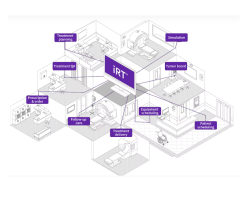August 6, 2012 — Brachytherapy offers an effective and relatively inexpensive method of treating internal cancers, and its popularity in the future will likely rely on its financial status, according to a new report by GlobalData.
The new report, Brachytherapy Devices - Global Opportunity Assessment, Competitive Landscape and Market Forecasts to 2018, suggests that the growing cost of cancer treatment has intensified focus on the cost-effectiveness of treatment approaches, and brachytherapy is perceived to be the best option.
Assessment of the costs and benefits of new and existing cancer treatment methods are essential for clinicians, payers and healthcare policymakers. Lifetime treatment costs for brachytherapy have been found to be nearly $3,000 lower than costs for radical prostatectomy in the treatment of low-risk prostate cancer, making it a high-value alternative. Data from U.S. patients newly diagnosed with prostate cancer over five and a half years revealed that brachytherapy was among the most cost-effective options, totaling a comparatively low $35,143.
The need for fewer treatments best serves patients who do not have local access to radiation treatment, cutting out lengthy journeys to an oncology center and representing significant cost savings for patients, as transportation costs constitute out-of-pocket expenses. Brachytherapy also saves money for healthcare systems, as lifetime treatment through brachytherapy costs substantially less than radical prostatectomy and intensity-modulated radiation therapy (IMRT).
Moreover, temporary brachytherapy is gaining popularity among both physicians and patients due to its ease of use as an outpatient procedure. Treatment is also shorter, and has a lower risk of serious adverse effects, making it altogether more likely for patients to conform to treatment schedules and refrain from wasting appointment times.
However, Medicare reimbursement cuts threaten the growth of the brachytherapy devices market in the United States, potentially removing brachytherapy from a huge portion of the global cancer patient population. The 2012 final Medicare Physician Fee Schedule (MPFS) saw Centers for Medicare and Medicaid Services (CMS) finalize proposals reducing Medicare payment rates for physicians by 27.4 percent for services in 2012. Earlier in 2010, the CMS under the MPFS-proposed rule implemented reimbursement cuts of 19 percent for radiation oncology. Based on these changes, it is estimated that radiation oncology, including brachytherapy, will experience an impact of negative 6 percent in 2012 and negative 10 percent in 2013.
For more information: www.globaldata.com


 December 04, 2025
December 04, 2025 









